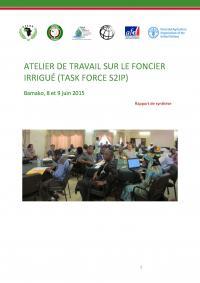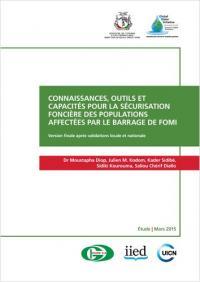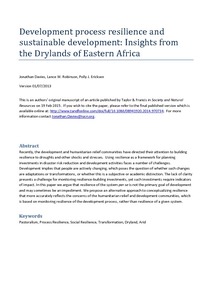Location
IUCN is a membership Union uniquely composed of both government and civil society organisations. It provides public, private and non-governmental organisations with the knowledge and tools that enable human progress, economic development and nature conservation to take place together.
Created in 1948, IUCN is now the world’s largest and most diverse environmental network, harnessing the knowledge, resources and reach of more than 1,300 Member organisations and some 16,000 experts. It is a leading provider of conservation data, assessments and analysis. Its broad membership enables IUCN to fill the role of incubator and trusted repository of best practices, tools and international standards.
IUCN provides a neutral space in which diverse stakeholders including governments, NGOs, scientists, businesses, local communities, indigenous peoples organisations and others can work together to forge and implement solutions to environmental challenges and achieve sustainable development.
Working with many partners and supporters, IUCN implements a large and diverse portfolio of conservation projects worldwide. Combining the latest science with the traditional knowledge of local communities, these projects work to reverse habitat loss, restore ecosystems and improve people’s well-being.
Resources
Displaying 51 - 55 of 142Workshop on irrigated land tenure in the Sahel (Task Force for implementing the 'Dakar Declaration')
This is the report of a workshop held on 8 and 9 June 2015 in Bamako, Mali, to present and discuss the results of a study on securing irrigated land tenure in the six countries within the Permanent Inter-State Committee for the Fight against Drought in the Sahel (CILSS) in the context of the "Dakar Declaration".
Knowledge, tools and capacity for land tenure security for people affected by the Fomi dam
The Fomi dam project is located on the Niandan tributary of the Niger in Guinea, 30 km upstream of the Niandan-Niger confluence, near Kankan (region of Upper Guinea). In development since 1988 with an update of the feasibility study in 1999, the Fomi project is integrated in the Sustainable Development Action Plan (SDAP) of the Niger Basin Authority (NBA) since 2007. An Environmental and Social Impact Assessment, consisting of an Environmental and Social Management Plan, Involuntary Resettlement Plan and a Local Development Plan, was completed in 2010.
Connaissances, outils et capacités pour la sécurisation foncière des populations affectées par le barrage de Fomi
Le projet de barrage de Fomi se situe sur le Niandan, affluent du Niger en Haute-Guinée, non loin de Kankan. Le projet Fomi est intégré au Plan d’action de développement durable (PADD) de l’Autorité du Bassin du Niger (ABN) depuis 2007. Une étude d’impact environnemental et social, composée d’un plan de gestion environnementale et sociale, d’un plan de réinstallation involontaire et d’un plan de développement local, a été finalisée en 2010.
Development process resilience and sustainable development: Insights from the Drylands of Eastern Africa
Recently, the development and humanitarian relief communities have directed attention to building resilience of pastoral communities to droughts and other shocks. While resilience thinking has much to offer, using resilience as a framework for investing in disaster risk reduction and development faces numerous challenges. Development implies that people are actively changing, which poses the question of whether such changes are adaptations or transformations, or whether this is a subjective or academic distinction.
Enhancing food security through forest landscape restoration
The case studies from Brazil, Burkina Faso, Ethiopia, Ghana, Guatemala, the Philippines and Viet Nam highlight how forest landscape restoration (FLR) interventions enhance food security. They illustrate the ‘win-win’ solutions that can enhance land functionality and productivity, develop resilient food systems and explore the long-term potential outputs and enabling conditions for FLR interventions.







